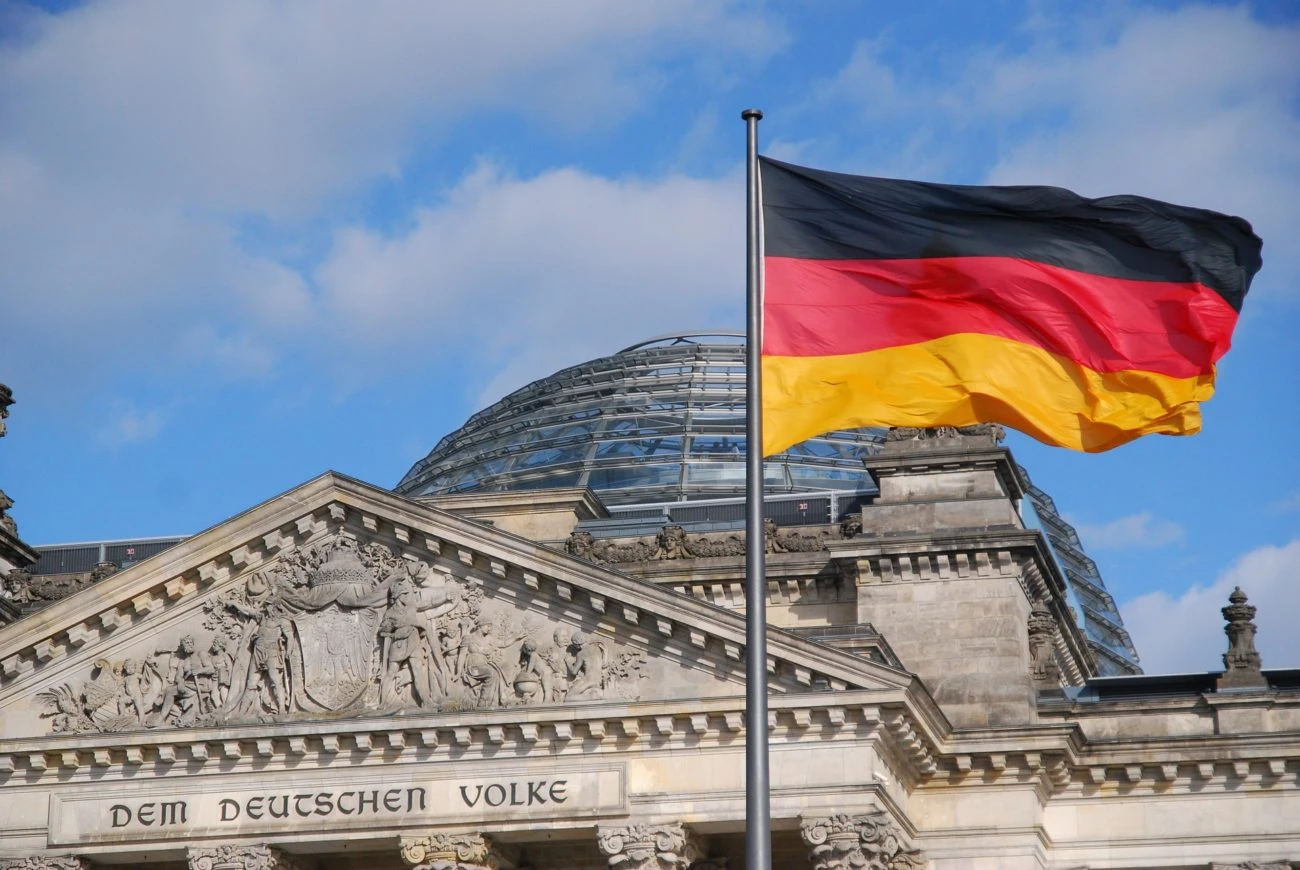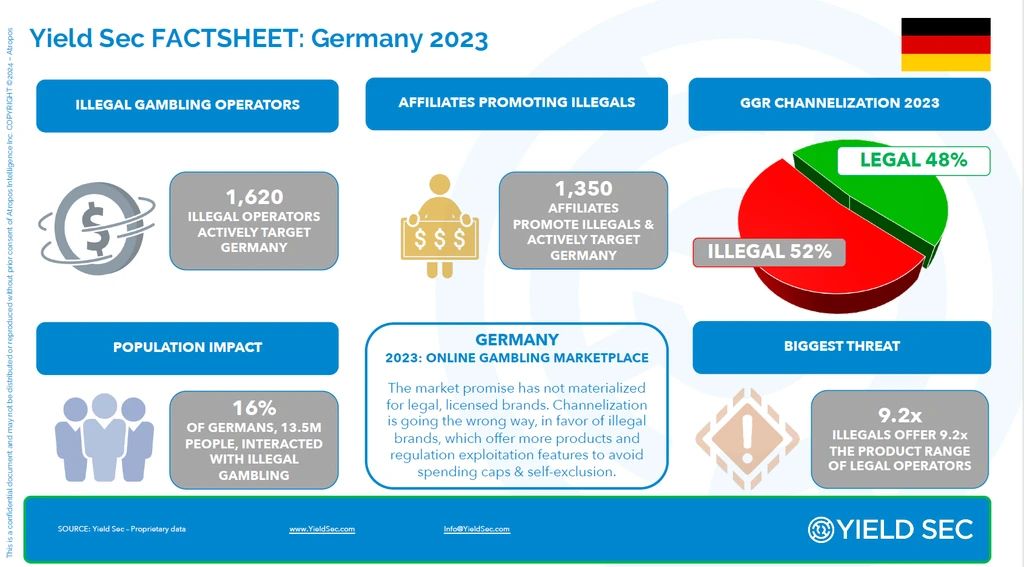Germany to decide on reimbursing illegal gambling losses

The 1st Civil Senate of the Federal Court of Justice of Germany (BGH) will schedule a hearing on 2 May. It will focus on the reimbursement of player losses from gambling with unlicensed operators.
The case has been brought forward by a plaintiff (claimant). It was originally dismissed by the Lower Court of Dresden (OLG Dresden) in 2023.
The defendant is an Austria-based sports betting operator that offered sports betting to German players during 2018.
During this period, the defendant did not have permission to provide sports betting to German players. The plaintiff in the case therefore claims that sports betting is inadmissible, thus rendering betting contracts as void.
As per the court documents, it is claimed that the defendant’s sports betting offer was illegal. This is because it did not meet the requirements of Section 4 Paragraph 5 No 2 GlüStV 2012 (Germany’s State Treaty for Online Gambling), which covers monthly maximum stakes per player.
It also breaches Section 4 Paragraph 5 No 5 GlüStV 2012, which separates sports betting and other gambling. The defendant also offered a cash-out function, which is non-permissible under the State Treaty.
With their lawsuit, the plaintiff also demands that the defendant repay the payments made to them in the amount of the losses suffered of €11,984.89, plus interest.
Will this become the norm for unregulated losses?
Munich-based Hambach & Hambach, a German law firm specialising in gambling law (among other verticals), outlines the current situation in Germany.
According to Hambach & Hambach partner Claus Hambach and senior associate Phillip Beumer, ruling in the plaintiff’s favour will set a risky precedent for Germany.
“The Federal Court of Justice, Germany’s highest Civil Court, has recently published an extensive note, outlining its preliminary view that a players could in principle be entitled to being refunded their losses from participating in sportsbook offers.”
This covers all precedents for operators not in possession of a German licence. “Until the end of 2020, not a single licence had been issued. Due to this note by the Federal Court of Justice, a reimbursement is now more probable under specific circumstances.”
The question now is whether this will set a precedent for a deluge of complainants.
“Mass media reports have already picked up on the above note by the Federal Court of Justice. According to representatives of the “player claim industry”, this indeed might now result in a deluge of complaints and court cases,” Hambach & Hambach explains.
“This could indeed be possible due to massive advertising and media reports. This reflects that financers seem to be ready to continue financing such claims now even for sports betting losses and not only casino losses.”
Could compensation claims for gambling losses be enforced?
“The majority of operators are not based in Germany and they do not have assets in Germany that could factually be enforced,” Hambach & Hambach explains.
In most cases, every jurisdiction would provide the opportunity to challenge the enforceability of foreign judgements. Notably, if players look to enforce their judgements in the country of licensing (for example, Malta), it is likely, in Hambach & Hambach’s view, that operators will apply for this to be rejected.
There has been precedent for this already, with Malta’s enaction of Bill 55. The law orders courts to refuse to recognise or enforce any foreign judgements against Malta-licensed operators in the European market.
Approved in 2023, the law will prevent any action being brought against Maltese operators for the provision of gaming services, when the activity is covered under their licence.
This law has proven to be very contentious in Europe. The German gambling regulator said the law conflicts with the Brussels Recast Regulation, which governs how legal judgements are settled between EU members.
In response to this, the MGA has pointed to the section in the Recast Regulation which says a member state may refuse to recognise a legal judgement if it does not match with the principles of its legal system.
In July 2023, the European Commission said it would examine it to ensure its compatibility with EU law. As such, it said it has requested more information from Malta’s authorities.
Once the Commission makes a decision, the case could make its way up to the European Court of Justice. The court has historically been the final decision maker in disputes between European and domestic law.
Is it in Germany’s interest to reimburse unregulated player losses?
Hambach & Hambach are adamant that reimbursing will be detrimental to the interests of this country.
“It is not in Germany`s interest!” says Hambach & Hambach. “The main reasons are three-fold. Germany’s massive black market will even grow further. If players are reimbursed for losses with unlicensed operators, this will only incentivise them to bet with unlicensed operators as the case law basically established betting without a risk of loss”.
As highlighted previously by iGB, a study from the University of Leipzig has warned that close to half of all online gambling in Germany still takes place with unlicensed operators.
The study was commissioned by the German Online Casino Association (DOCV) and the German Sports Betting Association (DSWV). It highlights that close to 50% of all German players use unlicensed sites.
The study estimates three-quarters of online revenue is generated by the black market. As a result, hundreds of millions of Euros in annual tax revenue is missed out on.
Most recently, Yield Sec charted an 11% growth in the illegal market in Germany, giving it a 47% share of the total marketplace for online betting and gambling, compared to 53% legal.

If this ruling were to rule in the plaintiff’s favour, then Hambach & Hambach highlights that Germany will have to reimburse all taxes previously paid to the state. “Germany will have to reimburse paid taxes for the past,” they explain.
Solving Germany’s regulatory quagmire
The third issue, as highlighted by Hambach & Hambach, is that German states will be liable for all damages incurred.
“The German legislator has first enacted a licence system for sports betting with an illegal limitation to 20 licences which was in breach with EU law. As a result licences have not been issued.
“After lifting the limitation in a new law the responsible licence authority implemented a non-transparent licensing proceeding. The issuing of licences have been stalled again. However, the German states and their gambling authorities have tolerated sports betting offers until licences have finally been issued.
“Gambling authorities have issued 30+ sports betting licences (including reliability checks) and dismissed those not being reliable (by breaching interim regulation standards of 2020).
“That these reliability checks by state authorities can be ignored by courts is absurd. Germany should be held liable for the legal chaos that it has created.”
Clearly, Germany has a raft of regulatory problems that need to be solved. That, however is unlikely to be solved in the next few years.
As previously highlighted by iGB, the current Interstate Treaty on Gambling does not expire until 2027. The “painful process of thrashing out regulations is an experience that state leaders don’t seem keen to repeat until then”.
Speaking to iGB previously, a spokesperson for the GGL says it is working on standardising procedures for licensing games to ensure that new ones could be approved quicker.
It is also understood that the GGL wants to tighten up procedures on fighting illegal gambling. It also aims to gain legal clarity on whether it can use IP blocking to stamp out black market sites.
Until then, though, providing “risk free bets” for players with the black market will be detrimental to Germany’s interests.
